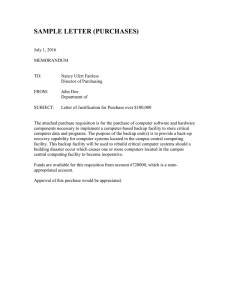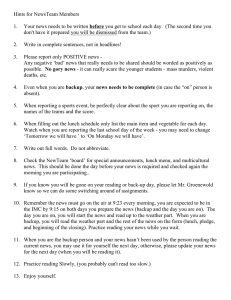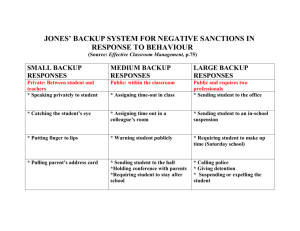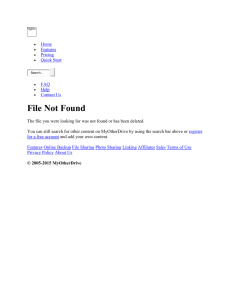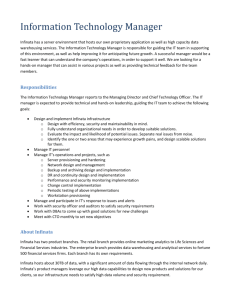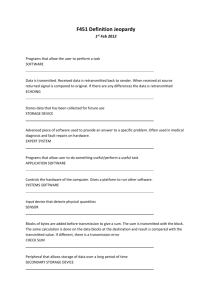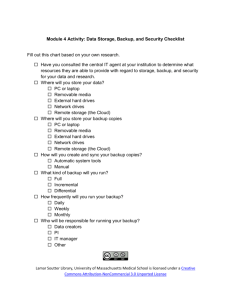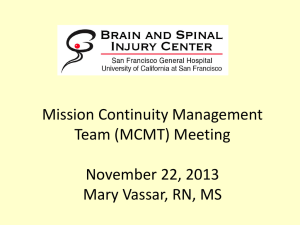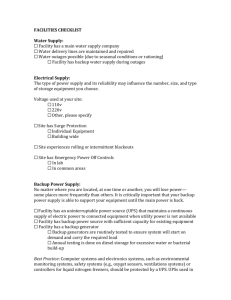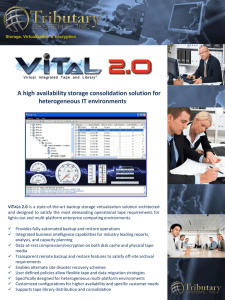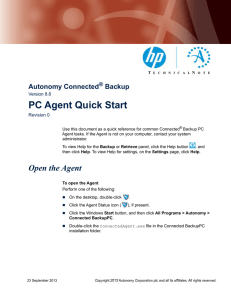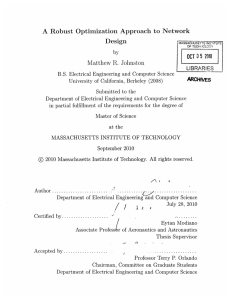PREPAREDNESS AND BUSINESS CONTINUITY CONSIDERATIONS FOR BC SCIENCE AND RESEARCH AREAS
advertisement
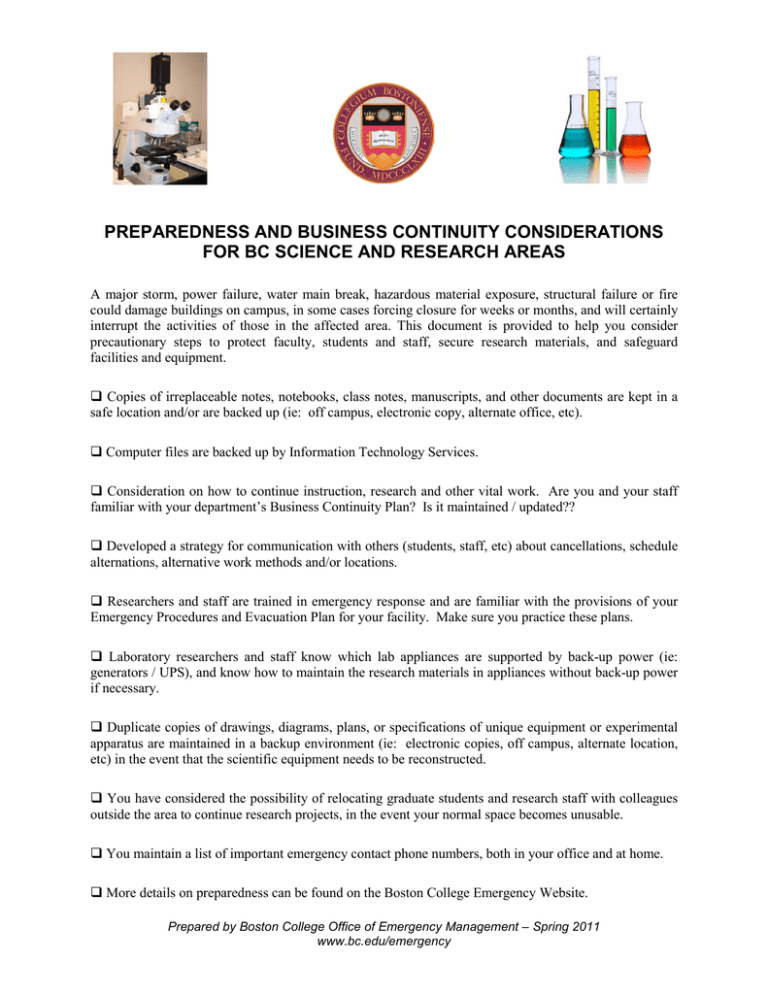
PREPAREDNESS AND BUSINESS CONTINUITY CONSIDERATIONS FOR BC SCIENCE AND RESEARCH AREAS A major storm, power failure, water main break, hazardous material exposure, structural failure or fire could damage buildings on campus, in some cases forcing closure for weeks or months, and will certainly interrupt the activities of those in the affected area. This document is provided to help you consider precautionary steps to protect faculty, students and staff, secure research materials, and safeguard facilities and equipment. Copies of irreplaceable notes, notebooks, class notes, manuscripts, and other documents are kept in a safe location and/or are backed up (ie: off campus, electronic copy, alternate office, etc). Computer files are backed up by Information Technology Services. Consideration on how to continue instruction, research and other vital work. Are you and your staff familiar with your department’s Business Continuity Plan? Is it maintained / updated?? Developed a strategy for communication with others (students, staff, etc) about cancellations, schedule alternations, alternative work methods and/or locations. Researchers and staff are trained in emergency response and are familiar with the provisions of your Emergency Procedures and Evacuation Plan for your facility. Make sure you practice these plans. Laboratory researchers and staff know which lab appliances are supported by back-up power (ie: generators / UPS), and know how to maintain the research materials in appliances without back-up power if necessary. Duplicate copies of drawings, diagrams, plans, or specifications of unique equipment or experimental apparatus are maintained in a backup environment (ie: electronic copies, off campus, alternate location, etc) in the event that the scientific equipment needs to be reconstructed. You have considered the possibility of relocating graduate students and research staff with colleagues outside the area to continue research projects, in the event your normal space becomes unusable. You maintain a list of important emergency contact phone numbers, both in your office and at home. More details on preparedness can be found on the Boston College Emergency Website. Prepared by Boston College Office of Emergency Management – Spring 2011 www.bc.edu/emergency Readiness Checklist for Research 1. Data Backup (Research & Scholarly Work): Is everyone’s important data retrievable in the event your building is destroyed (documents, notes, data, etc.)? 2. Data Backup (Vital Records): Are other vital records retrievable in the event your building is destroyed (grant documents, financial records, purchasing records, etc.)? 3. Working from Home (PIs): Is it possible for Principal Investigators to conduct current research while working at home? 4. Working from Home (others): Is it possible for other staff to carry out their functions while working at home? 5. Grants: Do your grant documents have clauses that address the possibility of disruptive external events? 6. Unique Knowledge or Skills: Can your projects proceed in the absence of any individual staff member? (In other words, is there anyone [except the Principal Investigators] whose absence would cause insurmountable difficulty?) 7. Purchasing: If the data network or the financial system is down, do you have a means to make purchases? 8. Supplies: Are there important supplies (consumables) whose stock-on-hand needs to be adequate in case your supply chain is interrupted? 9. Equipment Protection: Is your equipment and furniture adequately braced & bolted to minimize earthquake damage (ie: $50,000 microscope can be secured for less than $50)? 10. Animals: Do you have a plan to care for your research animals in the event that (heat, AC, power, water) are not functioning? Or if the building is not safe?? Backup food and water??? 11. Specimens: Do you have hard-to-replace specimens (biological, chemical, other) that could be replicated for remote storage? Be sure these are appropriately secured at all times. 12. Freezers: Are you protected adequately against freezer failure (generator power, knowledge of other on-campus freezers, means to move items elsewhere, etc.)? Consider emergency freezer for backup or cooperative agreements? 13. Proof of Ownership: Do you have the records needed for reimbursement claims? (model nos., purchase records, photos, etc.) 14. Alternate Location: Could you conduct your project(s) elsewhere if needed? Where? (Thanks to UC Berkley for the use of this checklist)
